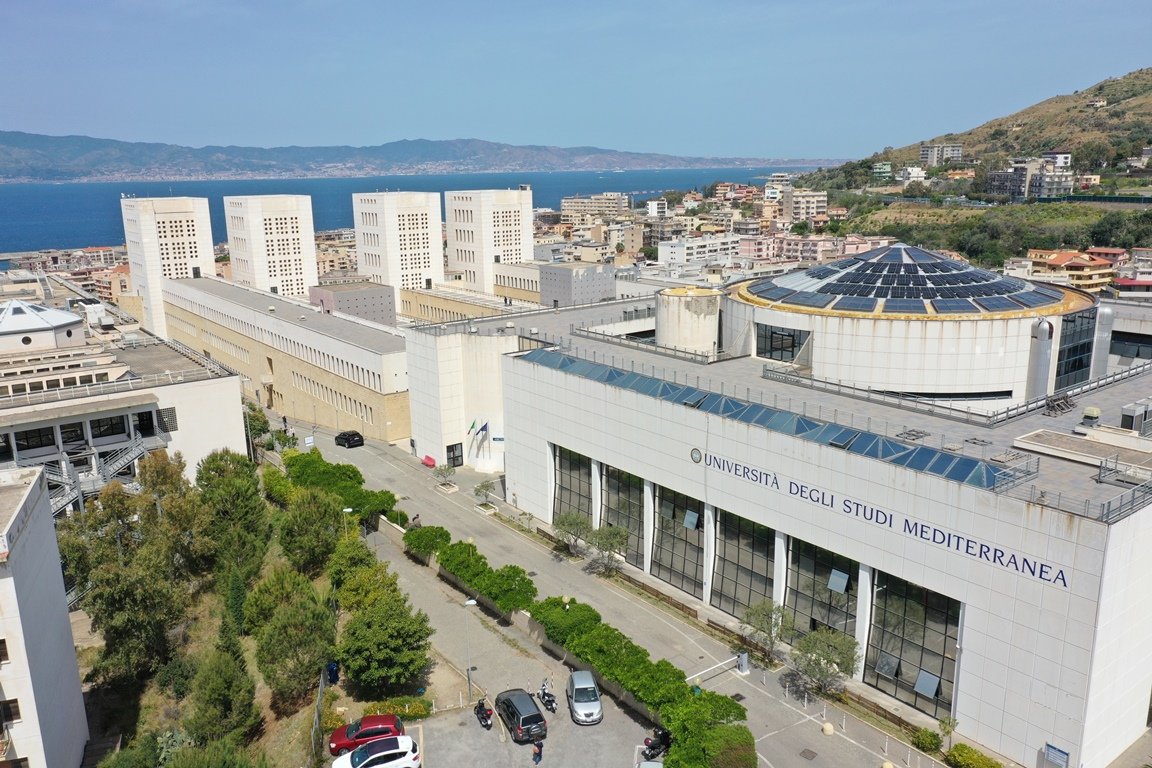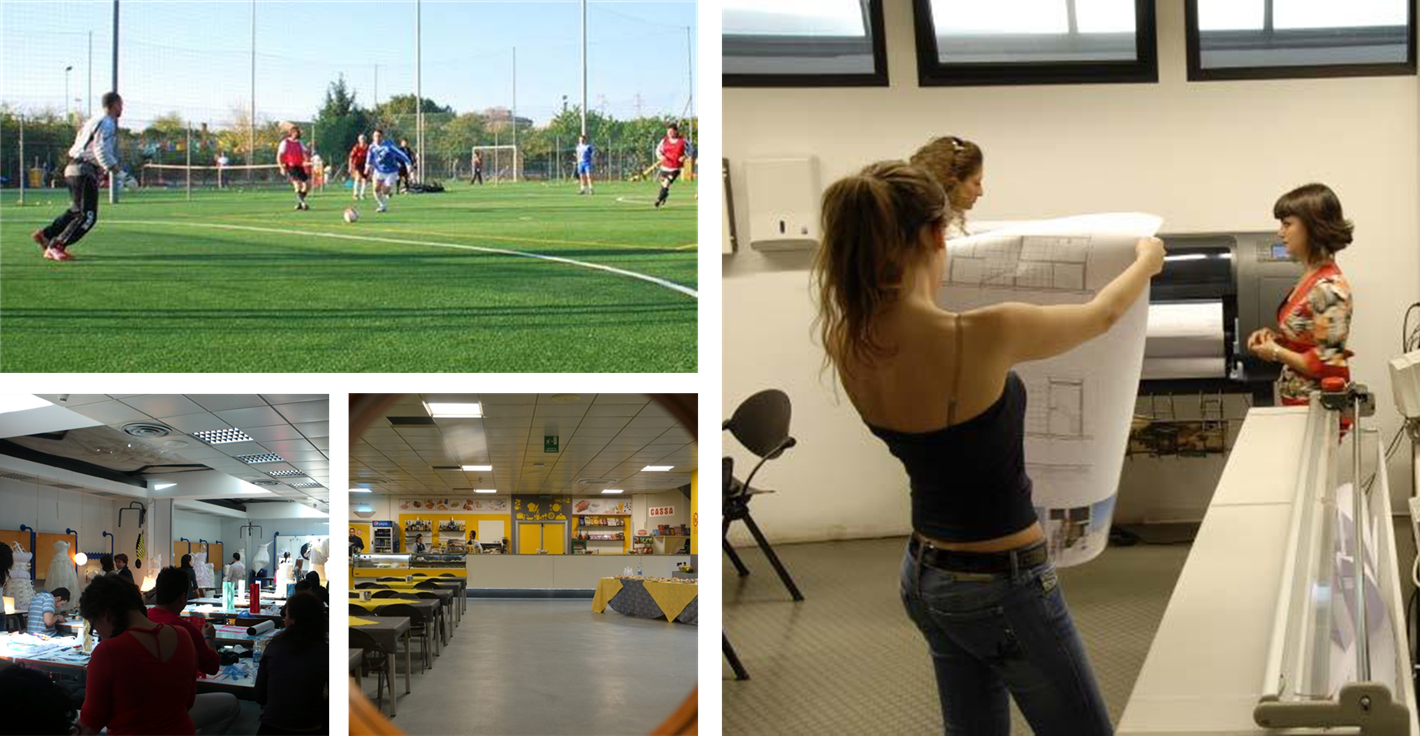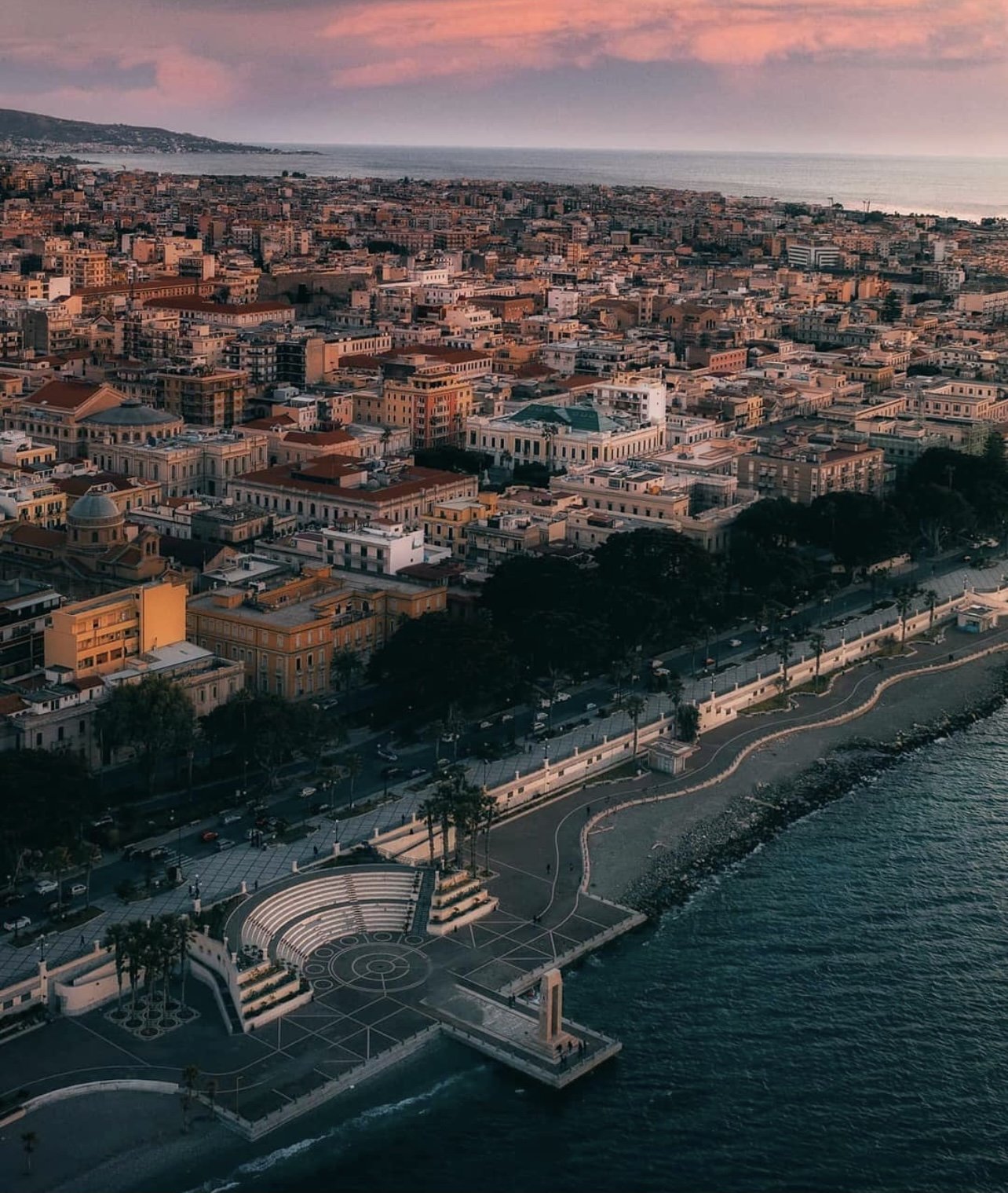Welcome Office
The UNIRC Welcome Office supports international students who have chosen the Università degli Studi Mediterranea di Reggio Calabria to study, prepare their thesis, do research, or carry out an internship, and offers them the following services
- Support for any pre-enrolment procedures on Universitaly;
- Information on the documentation to be produced for admission;
- Support for enrolment procedures;
- Assistance for the preparation of the Residence Permit Application Kit;
- Support for enrolment for the Right to Study Announcement (for scholarships, accommodation and meal vouchers) - (only for newly enrolled students);
- Access to the University WiFi network;
- Free Bus Service;
- Access the University services (Student Point, Gymnasium, Libraries, Laboratories, Canteens, Medical Outpatient Clinic).

The Università Mediterranea has a central administrative structure that, divided into different Areas, deals with all institutional aspects.
Departments are academic structures of the University, dedicated to the management and development of one or more areas of scientific research characterised by homogeneity of objectives or methods. In addition to promoting and coordinating research, they are responsible for planning and managing teaching and training activities related to these areas, ensuring the integration of knowledge and teaching. All Departments play an active role in external relations, developing collaborations and initiatives related or complementary to the scientific, educational and training objectives of the University.
Five Departments operate at the University:
Architecture and Design (dAeD)
Law, Economics and Human Sciences (DiGiES)
Civil, Energy, Environmental and Materials Engineering (DICEAM)
Information, Infrastructure and Sustainable Energy Engineering (DIIES)

Online Services and Student-Point
Students can carry out all their matriculation procedures online directly on the website: www.studenti.unirc.it. For information and assistance on online procedures, students can contact the Student Point, located in Lot D of the University Campus, a service equipped with computer stations with Internet access.
Wireless
The entire University is equipped with broadband wireless coverage, which enables faculty, students, staff and accredited guests to access Internet services and surf the web. To access the system, simply use your e-mail credentials or the institutional credentials specifically provided by the IT service.
Libraries
The Università Mediterranea hosts libraries and reference works can be carried out using the ‘Catalogo Unico on line’ system. This system enables students to search the bibliographic material and publications held by the University libraries and extends the information services offered to the academic community (students, lecturers, staff) and external users. It also facilitates access to the heritage of publications and journals specialised in the scientific disciplines studied in the courses offered by the Mediterranean University. The consultation work can be carried out from any place connected to the Internet and allows the location of documents in real time. In addition, the OPAC offers a number of additional services, which allow one to check the availability of a publication online, to archive one's research and to check the current available loans. This system also suggests books that might be useful for students to purchase.
Canteen Services
On the university campus there are three cafeterias open until late afternoon, offering both bar and canteen services at reasonable prices. By passing the economic test, students can use the services at a reduced price.
University Residences
The University has recently established the University College, which is located near the campus, not far from the city centre, and manages accommodation. The College's function is not only to offer accommodation to eligible students, but also to organise events and services that promote the social and cultural integration of students and their active participation in university life, not only in educational commitments but also in recreational time. Places in the College are allocated at the beginning of each academic year on the basis of income.
Free bus transport
Students and staff of the University can take advantage of the free shuttle service connecting the city to the University Campus. Two bus lines connect the airport to the campus of the Departments of Architecture, Engineering and Agricultural Sciences. The stops for these lines are at the Central Station, the Maritime Station and not far from the Department of Law and Economics.
Sports Campus
On the Mediterranea campus there is a gymnasium called ‘MedìClub’, located under the Aula Magna of the University ‘Antonio Quistelli’. It has a training area of over 350 square metres and is equipped with a wide range of equipment, changing rooms with services, and is accessible from both the campus and the city. The campus is also equipped with a five-a-side football pitch and an outdoor volleyball court.

FREE URBAN TRANSPORT - BUS TO AND FROM UNIVERSITY
The Mediterranean University, in agreement with Atam (Transport Company for the Metropolitan Area), offers the possibility of using two urban bus lines free of charge to reach the University premises from the city center and the main transport hubs.
The following can access the service:
- Students regularly enrolled at the University and in good standing with university fees;
- Students attending inter-university courses indicated by the University;
- Students attending Erasmus courses at the University;
- Technical-administrative staff of the University;
- University teachers and researchers;
- Users travelling to the University for conferences and various cultural initiatives, previously communicated to ATAM by the University (valid only for the days on which the initiative takes place and according to the methods specified from time to time).
Line: 27 - Airport - Viale Calabria - Piazza Garibaldi - Viale Zerbi (Port) - Terminal Libertà - San Brunello - Engineering - Agriculture. The line has a frequency of one trip every hour.
Line 28 - Airport - Viale Calabria - Piazza Garibaldi - Viale Zerbi (Port) - Terminal Libertà - Architecture. The line runs every hour.
Stops and timetables are available on the website www.atam.rc.it or on the “ATAM Trasporti e Parcheggi” APP.
BY CAR
- For those coming from the North : proceeding along the Tangenziale towards Taranto, exit at the junction of via Cardinale Portanova. Continue until the Palazzo del Consiglio Regionale della Calabria and turn right. Follow the road to the top of the Zerbi climb.
- For those coming from the South : proceeding along the Tangenziale towards the North (Salerno), exit at the junction of via Vallone Petrara. Continue until the Palazzo del Consiglio Regionale della Calabria and turn right. Follow the road to the top of the Zerbi climb.
STANDING
- Access Via dell'Università: from the Regional Council of Calabria reach Salita Zerbi and turn right until the entrance to the Cittadella.
- Access Viale Libertà : from Viale della Libertà reach the entrance of the Cittadella located near the roundabout. From here follow the pedestrian path to the elevator body.
FROM THE PORT
Proceed south on Via Vincenzo Florio towards Via Spiaggia Candeloro. At the roundabout take the 4th exit and take Viale Umberto Boccioni. Once you reach the "Mino Reitano" square you can decide to use the free transport service managed by ATAM, follow the pedestrian path to the elevator body or head towards Via dell'Università.
BY TRAIN - LIDO STATION STOP
Once you arrive at the Stazione Lido stop, continue along Viale Genoese Zerbi until you reach the roundabout near the port. From here, take Viale Umberto Boccioni until you reach Viale della Libertà (here too, choose whether to continue using the free transport service offered by ATAM, walk along the pedestrian path to the elevator body or head towards Via dell'Università).

Reggio Calabria is the most populous city in Calabria (about 180,000 inhabitants), located in the southernmost part of the region, on the eastern side of the Strait of Messina.
Historical notes
Reggio Calabria is one of the oldest cities in Italy, founded around 743 BC by the Greeks, who made it one of the most important cities of Magna Graecia. In 270 BC, it became part of the Roman Empire, maintaining a strategic role thanks to its position on the Strait of Messina.
After the fall of Rome, it came under Byzantine rule, then Norman (11th century) and later under the Kingdom of Naples. Over the centuries it suffered devastation, including the sacking of the pirate Barbarossa (1534) and the earthquake of 1783.
In 1860, it was annexed to the Kingdom of Italy with Garibaldi's Expedition of the Thousand, but its history was marked by the tragic earthquake of 1908, which destroyed the city. Rebuilt in Art Nouveau and neoclassical style, Reggio also faced the difficulties of the Second World War and, in 1970, was at the center of the Reggio Revolt over the question of the capital of Calabria.
Today, it is the heart of the Metropolitan City of Reggio Calabria, with a key role in tourism, culture and economy.
Monuments and Places to Visit
- Riace Bronzes – Greek statues from the 5th century BC kept at the National Archaeological Museum, which, after the one in Berlin, is the largest and most important museum that preserves the finds of Magna Graecia and which includes, among other valuable finds, the famous "Riace Bronzes" and the "Philosopher's Head"
- Lungomare Falcomatà – often called "the most beautiful kilometre in Italy", offers a panoramic view of the Strait of Messina, with various species of tropical plants and almost century-old ficus trees
- Cathedral of Reggio Calabria – rebuilt after the 1908 earthquake, it is the main place of worship in the city.
- Aragonese Castle – historical symbol of Reggio, with medieval origins and Aragonese alterations.
- Greek Walls and Archaeological Excavations – Evidence of the greatness of Rhegion.
Climate of Reggio Calabria
The climate is typically Mediterranean, with elements of greater microclimatic variability due to the particular geographical position, at the confluence of different meteorological areas: the Ionian, the Tyrrhenian and the Strait of Sicily.
Well connected and close to incredible destinations
Thanks to its proximity to Sicily, Tropea, Scilla and other wonders of Calabria, Reggio is the perfect starting point for unforgettable trips.
The city is very well connected to the rest of the world through the railway system (it is the terminus of one of the main Italian railway lines, the Rome-Reggio Calabria axis), the road system (the Mediterranean motorway A2 Salerno-Reggio Calabria), the National Airport of the Strait (located a few kilometres from the city centre), and the ferry and hydrofoil system to Sicily.
Come study in a city where history meets the sea and the future is built every day.
Reggio Calabria awaits you!
